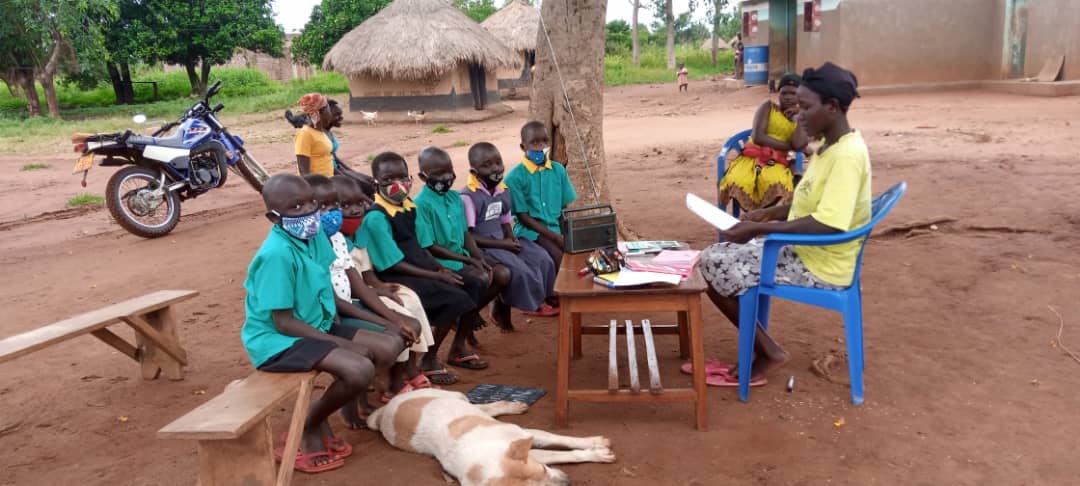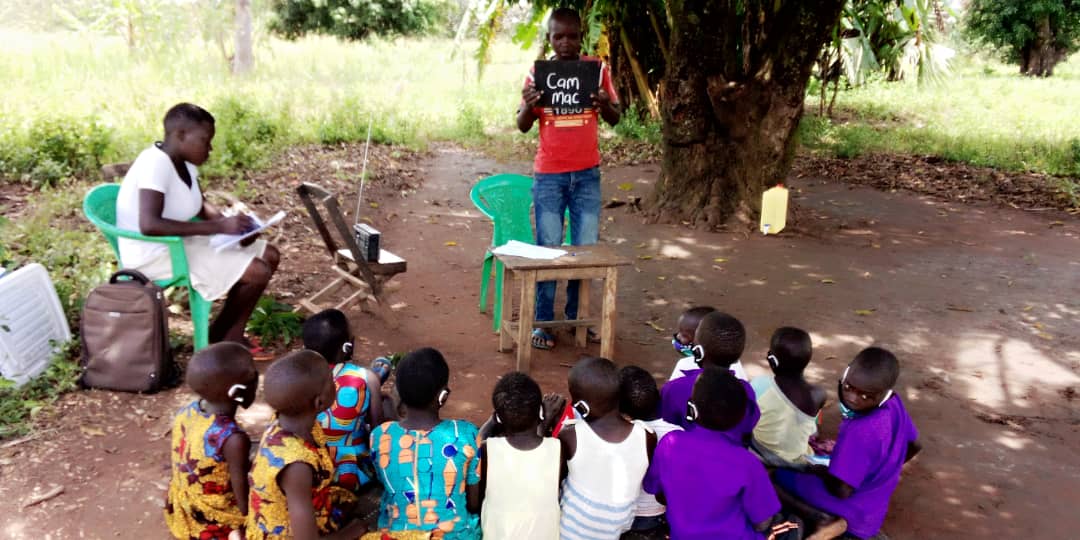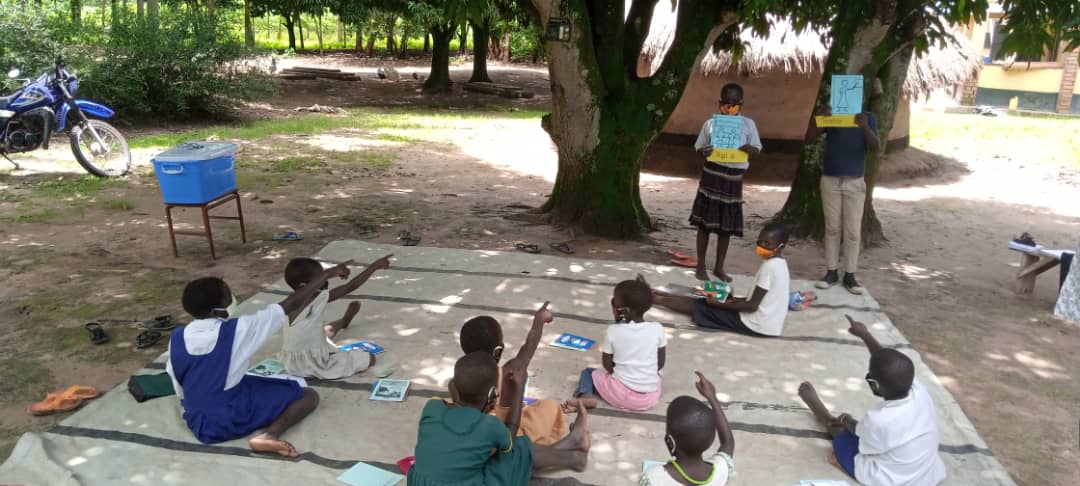In Northern Uganda, radio was the most accessible medium for young children when schools were closed
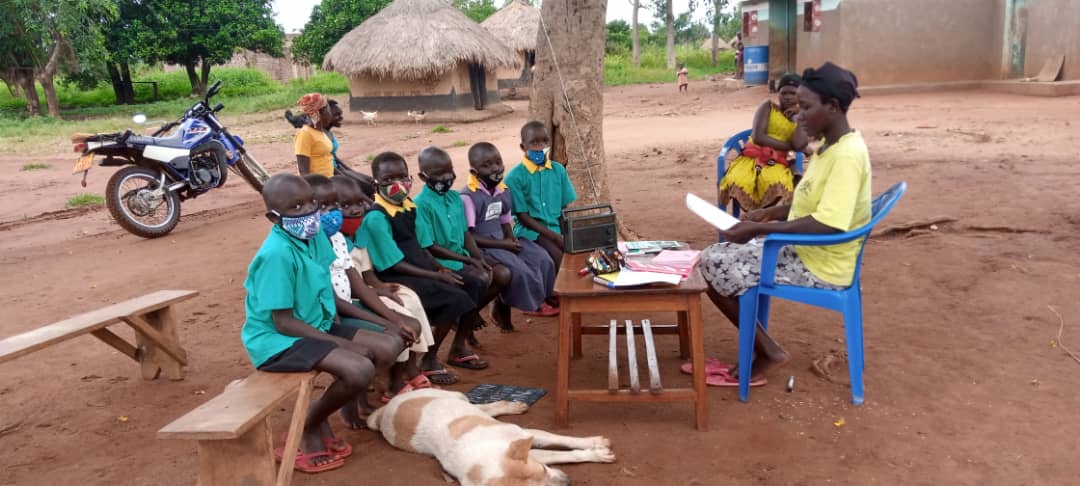
Craig Esbeck and the team at Mango Tree Literacy Lab (MTLL) recently delivered a fascinating report about their EdTech Hub Sandbox findings. If you’re not familiar with the project, we’ve blogged about it here, and we’ve published the full report here, so take a look.
The MTLL EdTech Sandbox took place from September to December 2020 and the hypothesis behind their project was this:
‘If we deliver radio content alongside a supportive human infrastructure and simple supplemental materials, then we can cost-effectively teach literacy in local languages and English to primary-age children when they are not in school, so that they achieve meaningful literacy competencies.’
This is significant considering that a recent Unicef report shows COVID-19 related school closures affected around 250 million students in sub-Saharan Africa in 2020, adding to the 100 million children already out of school before the pandemic.
If you’re unfamiliar with the word ‘sandbox’ in this context, it’s a term borrowed from software engineers that simply refers to dedicating space and time in a real-life setting to test an idea or pilot a new programme.
Importantly, the Sandbox is iterative and encourages adaptation. Taking into consideration that this was a weekly radio show, broadcast over twelve weeks, there was enormous opportunity to learn, change and grow. According to MTLL Director, Craig Esbeck, once funding is secured, the pilot will be converted into a long-term project and scaled up in scope and coverage.
Over the years, Neil Butcher & Associates (NBA), through its research funded by the William and Flora Hewlett Foundation, has dedicated funding to supporting various MTLL projects in the Lango subregion of Uganda and has eagerly followed the NGO’s work, because it speaks to so many of the things we value, engage with and endeavor to promote, particularly when it comes to early literacy, open licensing, and alternative publishing systems. NBA created a website, the Early Literacy Resource Network, to showcase early literacy, its initiatives and research, primarily in Africa, but also more broadly in the global South.
So, the results of the pilot and the plans for a blended radio learning programme, going forward, are encouraging.
According to Esbeck, ‘Ugandan primary school children will return to school in May or June 2021 for an abbreviated school year. Whatever the government decides, our plan has always been to transition to a post-Covid world. I see our radio education programming (along with our book sales model) as a way to provide parents and communities with an optional supplement to government education.’
Using the old idiom, ‘it takes a village,’ might seem trite, but in this situation, it’s relevant considering how the project played out, who was invited to get involved, and who got involved.
Having a well-established relationship in place with members of the local government and schools, the MTLL team were confident they would be able to rely on their support when they initiated this radio project, but the NGO received an abundance of additional support from the community, with parents, guardians and community leaders fully invested in the weekly ‘classroom’ set-up, as well as the feedback sessions.
In his full report on the Edtech Hub Sandbox, Esbeck has beautifully laid out MTLL’s six critical beliefs for the project, and then backed these up with evidence from key findings that resulted from the Sandbox. These are well worth reading as they explain the NGO’s intentions, and summarize the results, lessons learned and some of the plans made based on these lessons.
As an example, Esbeck says MTLL is developing a Listener Workbook to accompany the radio show.
‘The basic idea is that the workbook can be purchased very cheaply (along with our storybooks) by parents and schools that want to help supplement their children's learning in early primary. We're still not exactly sure of our model and the overall infrastructure in which it will happen, but we're hoping for the funding to clarify that in the short term, so that we can scale up our model in Lango and then begin partnering with NGOs working in other language communities in Uganda to help them create similar models.’
What’s interesting is that the Sandbox pilot was conducted with books that were available from an earlier project that funded the printing of openly licensed books . With the support of government officials, MTLL re-published these textbooks and made them available to schools and pupils that didn’t have any, or only had a few in circulation.
The full report is available here: The Use and Dissemination of Openly Licensed Storybooks and Learning Materials by Mango Tree Literacy Lab, Lira, Uganda.
When the Sandbox launched, MTLL’s collection of leftover openly licenced books were efficiently put to use in kits for the listening centre coordinators and the co-teachers who made up the ‘teaching’ team on the ground, ensuring the radio lessons were taught to their full potential.
Esbeck explains, ‘the Sandbox afforded us the opportunity to explore which materials were most effective and gather more information on how the books were used in a peer mentoring context. The only listener material that was not already printed was the Ugandan P1 Term 1 English textbook that also had a CC BY license. All the guidebooks for district leaders, hosts, listening centre coordinators and co-teachers were created – very quickly! – prior to the pilot. All of these will be revised and expanded if we get funding for subsequent iterations based on what we learned from this Sandbox. We had to make it very clear to the district officials that our versions of the P1 Term 1 Leblango and English textbooks were within our legal right to print. They were part of this process from our earlier project and as far as I know, very supportive of making these open-source versions available for sale.’
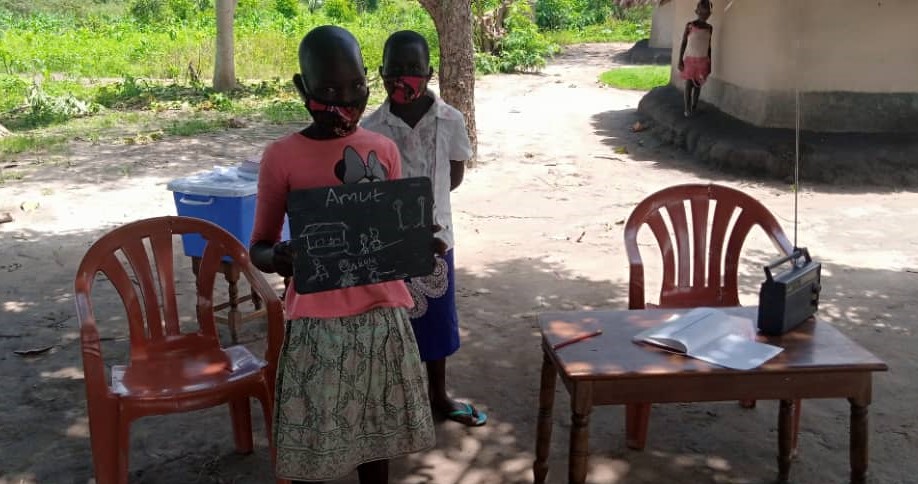
The children eagerly attended their lessons and made gains in their reading and comprehension skills, which further reinforced MTLL’s hypothesis that radio can play an important role in teaching and learning for young children. Working within the government school system, working with materials that are openly licenced, and working with a medium like radio, which is accessible to everyone, means that MTLL’s plans are scalable, and will have longevity in the region and beyond.
Note: The Unicef report referenced in this blog post is titled: COVID-19: A catastrophe for children in sub-Saharan Africa and was published on 26 November 2020.





